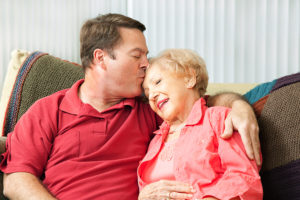
Caregivers in Turnersville NJ: Helping Seniors Deal With Life Transitions
Life transitions are inevitable, because change is a constant force that shapes human lives. While life transitions like going to college or the military, marriage, and childbirth happen to young adults, there are many impactful events that take place with elderly adults. Life transitions can be planned or unexpected, but either way, they usher in a period of changing from one condition to another.
Too many life transitions can affect an elderly person’s physical and mental health, however. Family caregivers that are looking after an aging relative need to understand what an elderly person’s life transitions are and how to help them deal with significant change.
Common Life Transitions for Elderly Adults
Going through one or more life transitions can be hard as an elderly adult. Many changes are life-changing, such as chronic illness or the loss of a spouse. Other common life transitions include retirement, change of driving habits, moving from their longtime home, accepting assistance and care, adjusting for health issues, and dealing with isolation. Often, seniors experience a kind of domino effect where one life transition takes place and that leads to a series of many.
These life events can trigger all kinds of emotions and feelings within elderly adults. Sometimes, the coping methods they need to deal with these major changes are not as viable as they once were. In other words, seniors often have fewer mental and physical resources to manage their stress during life transitions. For example, when an aging adult used to be very active and exercise to relieve stress, age and illness now prevents them from doing it.
How to Help Elderly Adults Deal with Life Transitions
The inability to deal with life transitions can leave elderly adults feeling angry, fearful and helpless. Other emotions include despair, powerlessness and apathy. It’s not unusual for seniors to develop clinical depression as a result of significant life transitions. This can result in withdrawing from activities, abuse of drugs and alcohol and even suicide. It’s important that family caregivers jump in and do what they can to help their aging relatives deal with impactful life transitions.
The best way for family caregivers to assist their elderly loved ones during and after life transitions is to understand where their pain and trauma are coming from. By acknowledging the difficult times that life transitions bring, family caregivers position themselves to be a real support. Often, seniors need to process their emotions about their life transition and speaking to family, friends and a therapist may be just what they need to cope.
Family caregivers can also help by providing solutions to any problems or hardships created by the life transition. Examples include relocating to the caregiver’s home instead of a retirement center, help with hiring a home care agency, assisting with finances, ensuring the elderly person is not always alone and supporting them with different coping methods. With support and understanding, elderly adults will be better able to deal with life transitions that lead to permanent changes.
Source:
For caregivers in Turnersville, NJ, and the surrounding areas, call and talk to us at Home to Stay Healthcare Solutions (856) 321-1500.







